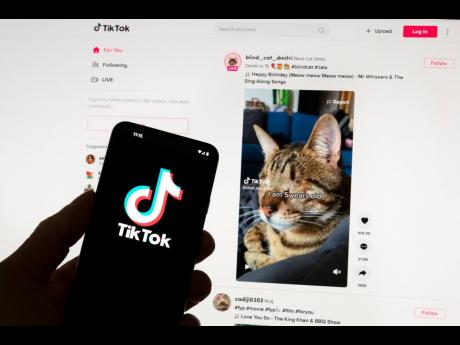Michael Abrahams | AI will be the death of us
On Saturday morning, I woke up to some disturbing news. A friend contacted my wife and told her that someone had produced an artificial intelligence (AI)-generated video of me, also known as a deepfake, talking about clogged blood vessels and endorsing a product I had never heard about called ‘BloodGuard’ that is supposed to prevent the phenomenon. Next thing I knew, there was a flood of WhatsApp messages from friends sending me the AI-generated video, showing me speaking with what sounded like a robotic British accent. I was also sent a concocted newspaper article, supposedly from a local newspaper, featuring a fake interview with me.
According to these posts, I am a cardiology professor who has been studying heart and vascular problems for 14 years. The truth is, I am an obstetrician and gynaecologist who has never studied heart and vascular issues beyond medical school. I reported the posts, and as I was trying to process this surreal experience, my friend, social media content creator Julie Mango, called me, laughing while telling me she did not know I was a cardiologist. My retort, which I cannot repeat here because children read this newspaper, made her laugh even harder. Then, on Instagram, under my post denying involvement in the scam, another friend, dancehall artiste Stacious commented, “Mi a come skin out mi heart mek u check it,” with a laughing face emoji.
In Jamaica, we have a saying, “tek serious ting mek joke”. I may have laughed at my friends’ comments about the situation, but it really is no laughing matter. I just do not know what to believe any more. A few months ago, on Facebook, I recall seeing a photo of a little African boy with a model of a car he supposedly made from plastic bottles. I was impressed. Then, I began to see many photographs of other African boys with models of planes, buildings, animals, and other objects made from plastic bottles. I thought this was a bit too much, only to realise that the images were all AI-generated. Apparently, pics of African boys posing with models constructed from plastic bottles is a thing.
AI-GENERATED
I follow many nature sites on Instagram. Recently, I began to see photos of birds with plumage I had never seen before, some with all the colours of the spectrum. As was the case with the plastic bottle kids, I was impressed, only to discover that the images were AI-generated. Then I heard a song on YouTube featuring a voice sounding like that of a rapper I know, only to discover that the voice and music were AI-generated, too.
Humans are fascinating creatures. The brightest of us will invent or create things that will enhance the lives of many, only for the worst of us to use those very things to create mischief or harm. For example, nuclear energy can provide electricity on a grand scale to make our lives easier. So, what did humans do? Create atomic bombs to drop on and threaten other humans.
Similarly, AI is one of the greatest inventions of the 21st century. It has useful applications in probably every sphere: education, health, transportation, communication, entertainment, and others. But many use it instead to create mischief, cyberbully, deceive, cheat, and scam.
I recently saw an AI-generated video produced by students at my sons’ school. It was captioned ‘Dance Or Change The Hair Rule’ and showed the dean of discipline dancing energetically to a dancehall song. That was funny. I also saw one with Donald Trump and Vladimir Putin singing a version of It Wasn’t Me. I found that funny, too.
DOWNSIDE
But there is a downside. People use AI apps such as ChatGPT to cheat on exams and coursework at educational institutions. And just as how Trump and Putin were made to look like they were singing a song together, people can look like they are saying and doing things they would not say or do. By creating deception, AI has been used to perpetrate a lot of mischief, such as political propaganda, revenge porn, racism, xenophobia, homophobia, transphobia and other types of attitudes and behaviour that can affect us mentally, emotionally, physically, socially and financially.
In my case, my image was used in an attempt to scam people into buying a product. There was a link to click on to purchase the supplement, but doing so does not guarantee you will get it. Or you may get the product, but it does not do what it is supposed to, or may even harm you. Another possibility is that clicking on the link could infect your device with a virus that may corrupt your files or steal your personal information.
We need to be careful. We must fact-check unusual or sensational images and stories before we post them. We should also avoid talking to people we don’t know on the phone as much as we can, as there are apps that can use our voices to generate statements that appear to be coming from us when we never made them. And we should refrain from buying new products online without extensively researching them. As for ‘BloodGuard’, do not even think about trying to buy it. It is a scam.
While writing this story, my wife showed me a video of a beautiful fish, with a kaleidoscope of colours, on Instagram. The fish is called a ‘nemo galaxy multicolor halfmoon betta’. With all this AI going around, I was like, “Yeah. Right.” I did not want to be duped as I had been so many times before, so I Googled it. It is real. It does exist. The nemo galaxy multicolor halfmoon betta is a gorgeous, real creature. I want to get one.
Michael Abrahams is an obstetrician and gynaecologist, social commentator and human-rights advocate. Send feedback to columns@gleanerjm.com and michabe_1999@hotmail.com, or follow him on X , formerly Twitter, @mikeyabrahams.

